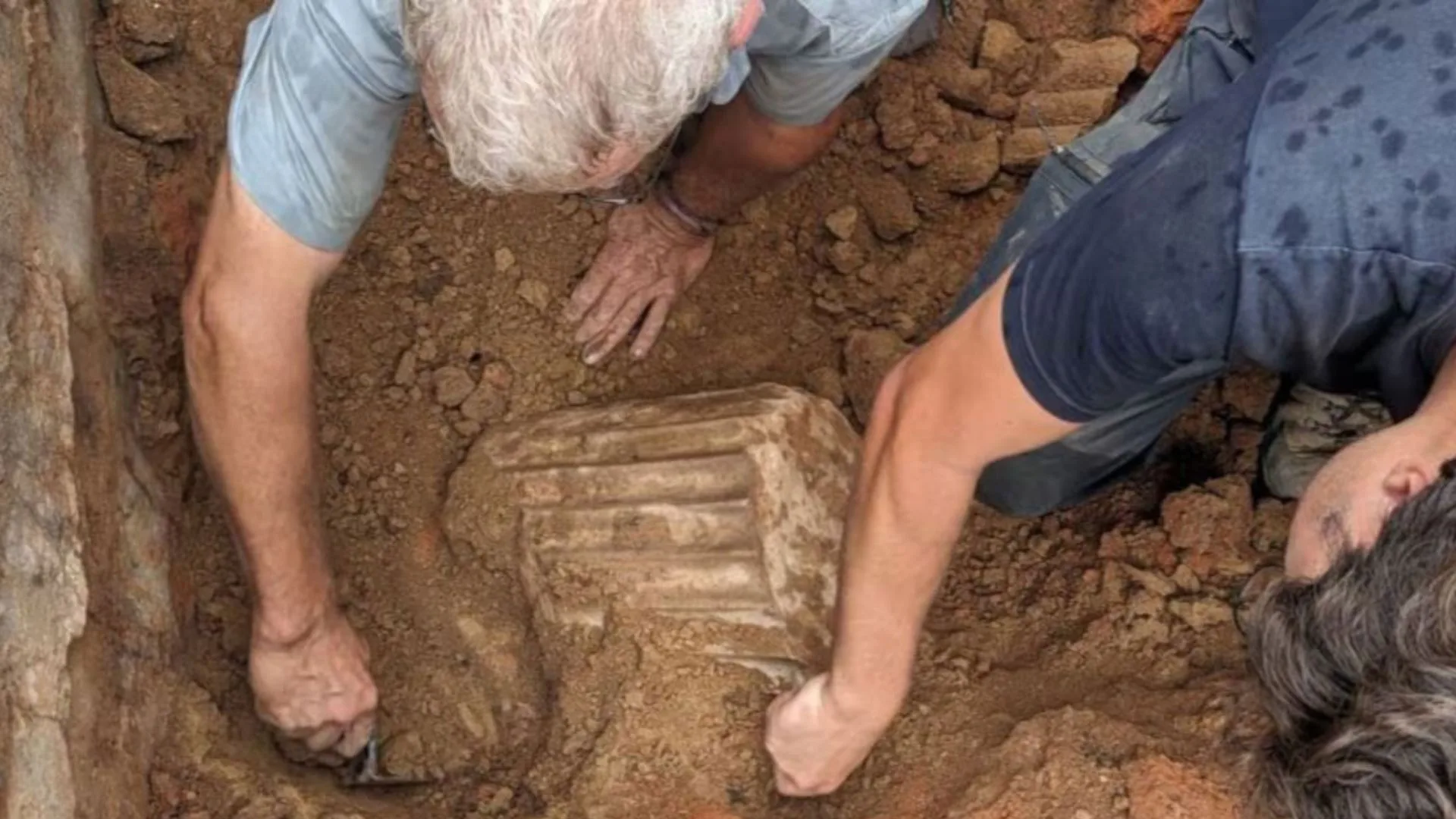Archaeologists have uncovered a marble column fragment from the 5th century B.C. at the Casas del Turuñuelo site in southwestern Spain, believed to be part of the oldest Greek altar ever discovered in the western Mediterranean. According to archaeology.org, Casas del Turuñuelo, first excavated about ten years ago, was established by the mysterious Tartessian civilization, which thrived in southern Iberia between the 8th and 5th centuries B.C.
Analysis revealed that the marble originated from the island of Marmara, located in modern-day Turkey. According to lead archaeologists Esther Rodríguez González and Sebastián Celestino Pérez, although Greek marble artifacts have been found in Spain’s coastal regions, this is the only known inland example made from Asian marble.
The column, which originally stood approximately five feet tall, was found alongside Athenian-made Greek drinking vessels. This discovery suggests that the Tartessians maintained trade links with the Greek world and were influenced by Greek cultural practices.
Source: archaeology.org
